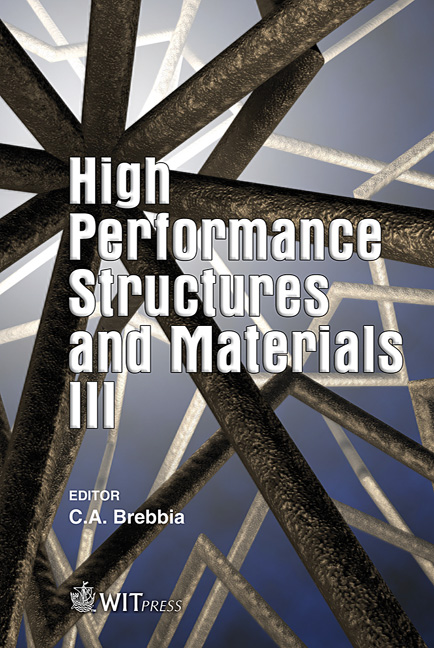Effects Of Forming Conditions On Mechanical Properties Of Resinless Bamboo Composites
Price
Free (open access)
Transaction
Volume
85
Pages
7
Published
2006
Size
380 kb
Paper DOI
10.2495/HPSM060161
Copyright
WIT Press
Author(s)
H. Takagi & H. Mori
Abstract
This paper deals with the development of resinless, unidirectional bamboo fibre-reinforced eco-composites. Resinless bamboo composites were fabricated by the hot-pressing of unidirectional bamboo fibres extracted by a steam explosion method. The effects of forming conditions on their mechanical properties were investigated. The forming temperature was changed every 20°C from room temperature to 180°C, and the forming pressure used was 10 MPa and 50 MPa. Except for the conditions below 60°C, their tensile strength and fracture elongation decreased with increasing forming temperature. Average tensile strength and Young’s modulus of the resinless bamboo composites fabricated at 120°C and 50 MPa were 322 MPa and 37 GPa respectively. Keywords: natural fibre, bamboo, resinless, binderless, unidirectional composites, tensile strength, modulus. 1 Introduction Biodegradable composites that are also known as \“green” composites are mostly made from natural fibers and a biodegradable resin. Therefore the composites are one of the most environment-friendly materials, because they are finally biodegradable, and thus can be resolved into carbon dioxide and water through the ideal decomposition stage. Hence, many researchers have been conducting the research on biodegradable composites, and especially on their mechanical properties [1-7]. However, most of the biodegradable resins are more expensive than conventional plastics, such as PP and PE. In addition, extra energy is needed
Keywords
natural fibre, bamboo, resinless, binderless, unidirectional composites, tensile strength, modulus.





